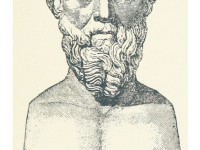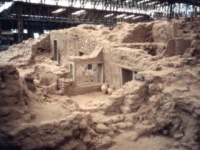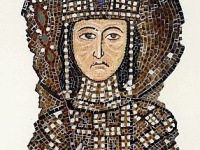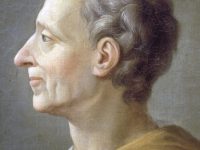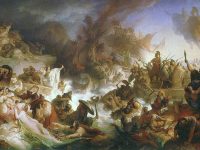Herodotus of Harlicarnassus – the Father of History
About in 484 B.C., ancient Greek historian Herodotus was born. A contemporary of Socrates, he is widely referred to as “The Father of History“. Herodotus was the first historian known to have broken from Homeric tradition to treat historical subjects as a method of investigation: specifically by collecting his materials systematically and critically, and then to arrange them into a historiographic narrative. Despite Herodotus‘ historical significance, little is known of his personal…
Read more

